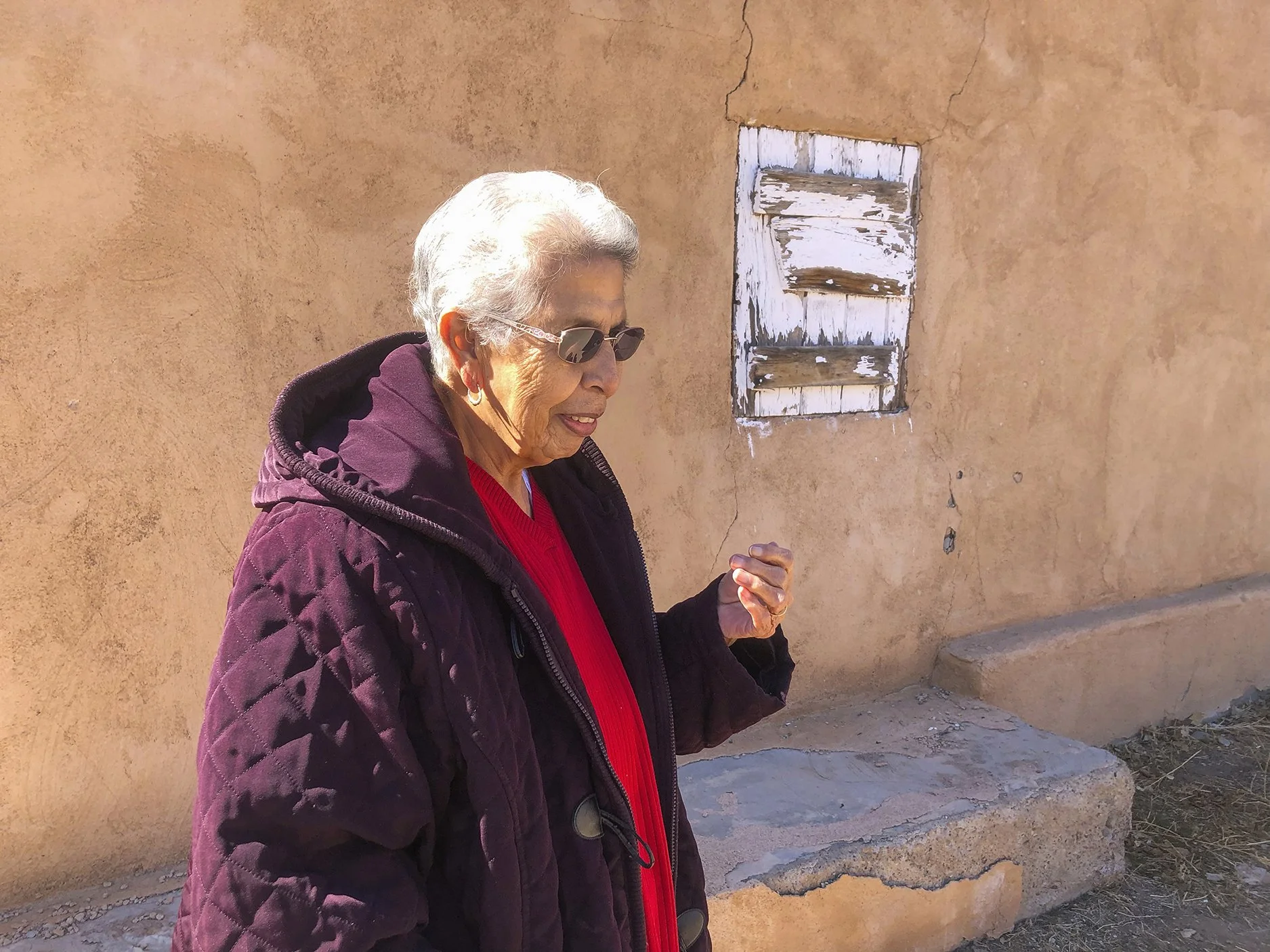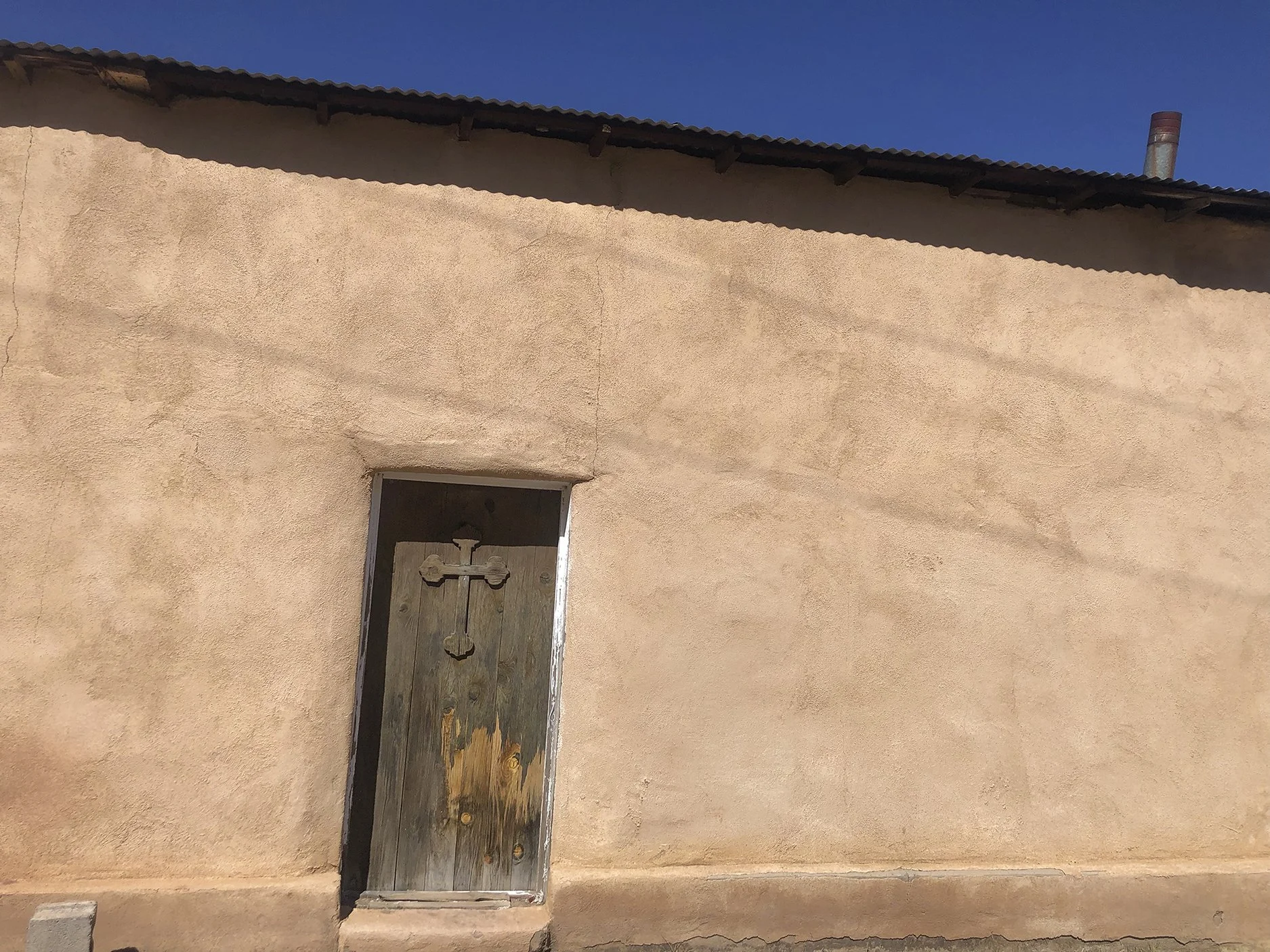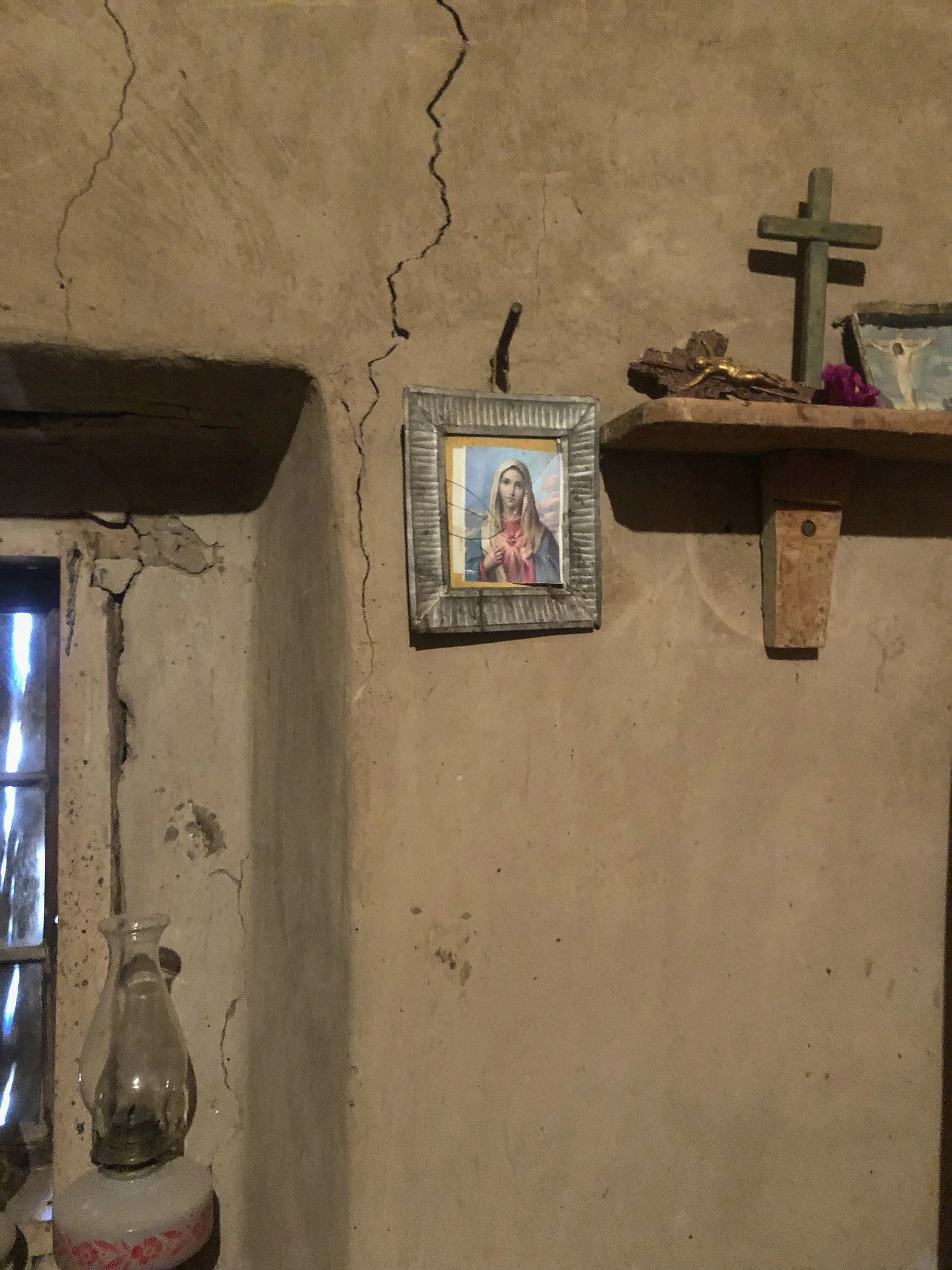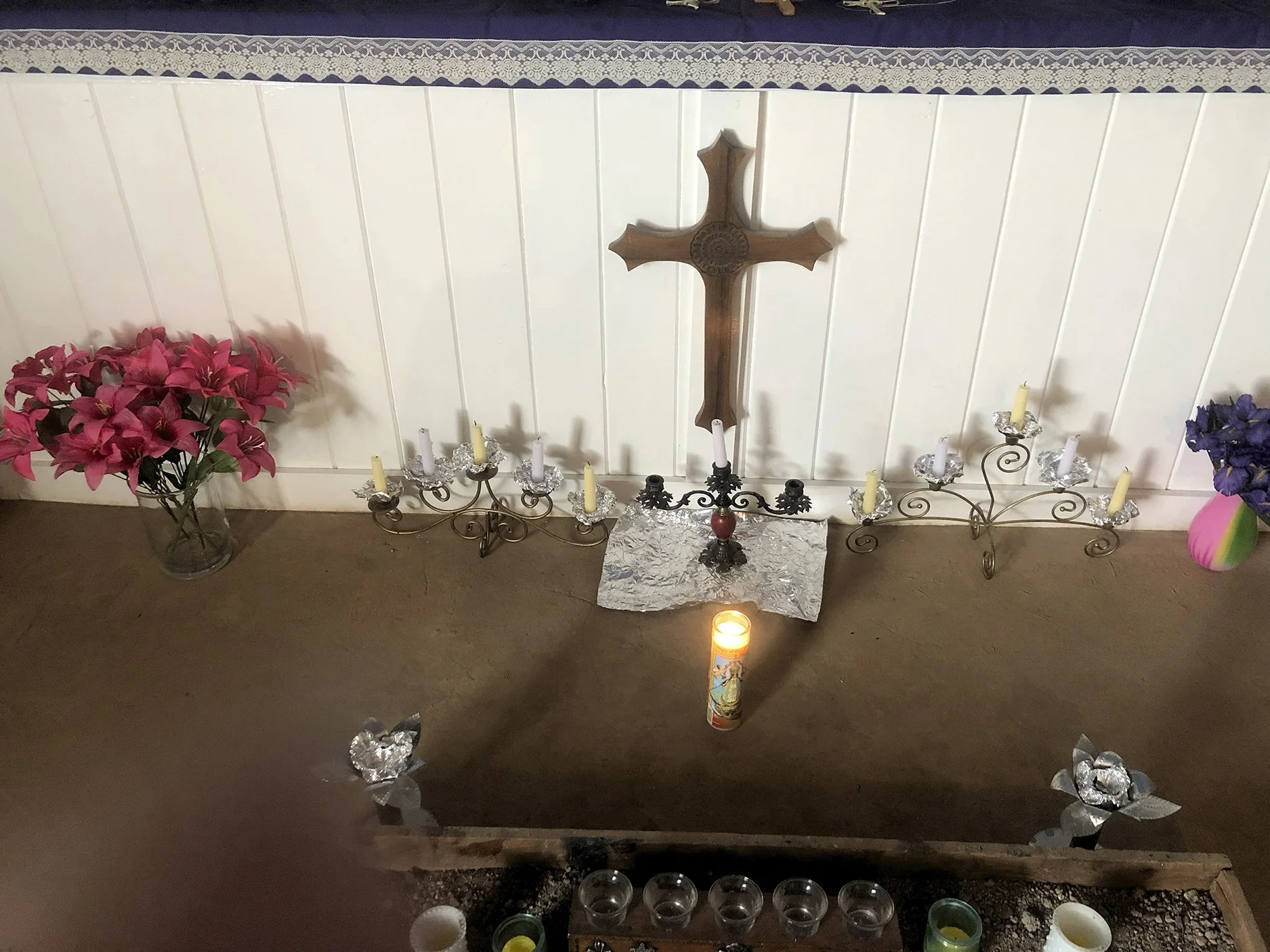In the month of March, we celebrate Women’s History. Theresa Jaramillo, nearing eighty, is the Overseer, as she calls herself, of one of the two Los Hermanos Penitente Moradas in Abiquiu, New Mexico. The Christian/Catholic “gift of faith” phrase best describes the devotion I recently experienced in speaking with Theresa. We met on a cold morning in the simple beauty of the MoqueMorada (Moque is a Tribal Name) up the hill from the Catholic church and on a dirt road in this small Northern New Mexico village.
Theresa and I were joined by Dexter Trujillo, who is the Hermanomayor of the Abiquiu Penitentes. The word Morada, meeting place, house of prayer, is the core location of worship for Los Hermanos (The Brothers) Penitentes. Much has been written but little is truly known about the Brotherhood, except that it is a mostly secret society, a lay confraternity that is accepted as part of the Catholic church and adheres to the old traditional teachings of several centuries ago. History tells us that because there were so few priests in the 1800s, the Morada was begun by a group of devoted laymen, although now the MoqueMorada is managed by women, and Theresa has “the managerial key.”
Theresa Jaramillo
The population has lessened and there are fewer and fewer people to help maintain the Moradas, especially the Moque. It really is up to Theresa. “I come here all the time to care for this place of worship, and I will come until I am not able. Look at the curtains up there, I just sewed the holes in them,” she said with a laugh. “I clean all the little statues, the Bultos, everything.”
The three of us sat in the sacred and sparse Morada. Benches lined the sides for those unable to kneel for the Mass. A lovely altar displayed the Virgin Mary, the Saints, Jesus on the Cross, and on the ground in front were bouquets of flowers and candles. For an hour we discussed the mission of the Penitentes, the history of the hundred-plus-year-old, plain and rectangular MoqueMorada building. We also spoke of the better known and much older Morada del Alto which sits on a beautiful bluff nearby. Not only do the Brothers preserve spiritual devotion, showing by example “how to better ourselves,” but they also provide many community services.
I asked about the rigidity of the extreme forms of penance, especially during the procession and inside the Morada during Holy Week.
“It is about identifying with the Passion and the suffering of Christ,” answered Dexter. “We do not speak of the Penances. We are sworn to secrecy and whatever happens in our Moradas is between us and our God. We ask for Respect.”
The door to the MoqueMorada.
I had heard that the Abiquiu women had taken over the MoqueMorada. If this was true, I wanted to understand the new role of women. “Are women now included in the Brotherhood, in some way?” I asked Theresa.
“No, we have not taken over the Morada,” she answered, “We are the Ayudantes, the helpers, the servers,” and Dexter quickly added, “The women are the backbone of the Morada.” Theresa said, “I was chosen by my Aunt Ida years ago when she could no longer serve. I am now the overseer. I was told that I have God in me. Perhaps I do. I took a vow and I intend, all the days of my life, to keep my vow.”
“But does it bother you that you are solely an Ayudante, not part of the Brotherhood?” I asked.
“No, I am a devoted Ayudante, But I do like it very much when a Brother calls me Hermanita,” Theresa said with a smile.
I listened and thought about the role of women, in general. How had it changed over the years, if at all? Putting together the various answers I was told by Theresa and Dexter, a word came to mind for the Women’s role—now and in the past: Stewardship, which is defined as ‘the careful and responsible management of something entrusted to one's care.’
The Mother Mary, on the wall inside.
Another word also came to mind: Witness. Theresa and Dexter told me something I had not known. There had been a Benedictine Convent in Abiquiu in the 1950s. The Nuns were highly educated and taught at the parochial school, from which Theresa graduated. The Nuns knew that the Priests were abusing young boys and apparently reported this to the Archbishop. The very celebrated painter, Georgia O’Keeffe, who lived in Abiquiu, also knew of the abuse and supported the Nuns and the Convent. But the outcome of the knowledge of maltreatment had little result, except for the closing of the Convent in the 1960s. Nuns, as witnesses and teachers, were not needed anymore.
The role of women then and perhaps now—Theresa, the Nuns, Georgia O’Keeffe—caretakers, observers, the truth-tellers; all, as Dexter said, were and are the backbone in Abiquiu.
In celebration.
An altar inside the Morada.
Holy Week will be celebrated in Abiquiu from April 14th through the 17th. All are welcome. “Come hear the Alabanos sacred hymns and eat our Panocha.”
Also, there is a Mass every other Wednesday at 7:30 in the evening in the MoqueMorada and every other Friday at 8:00 in the Morada del Alto.
For information, Theresa told me it is best to call Dexter Trujillo — 505-685-4660.





